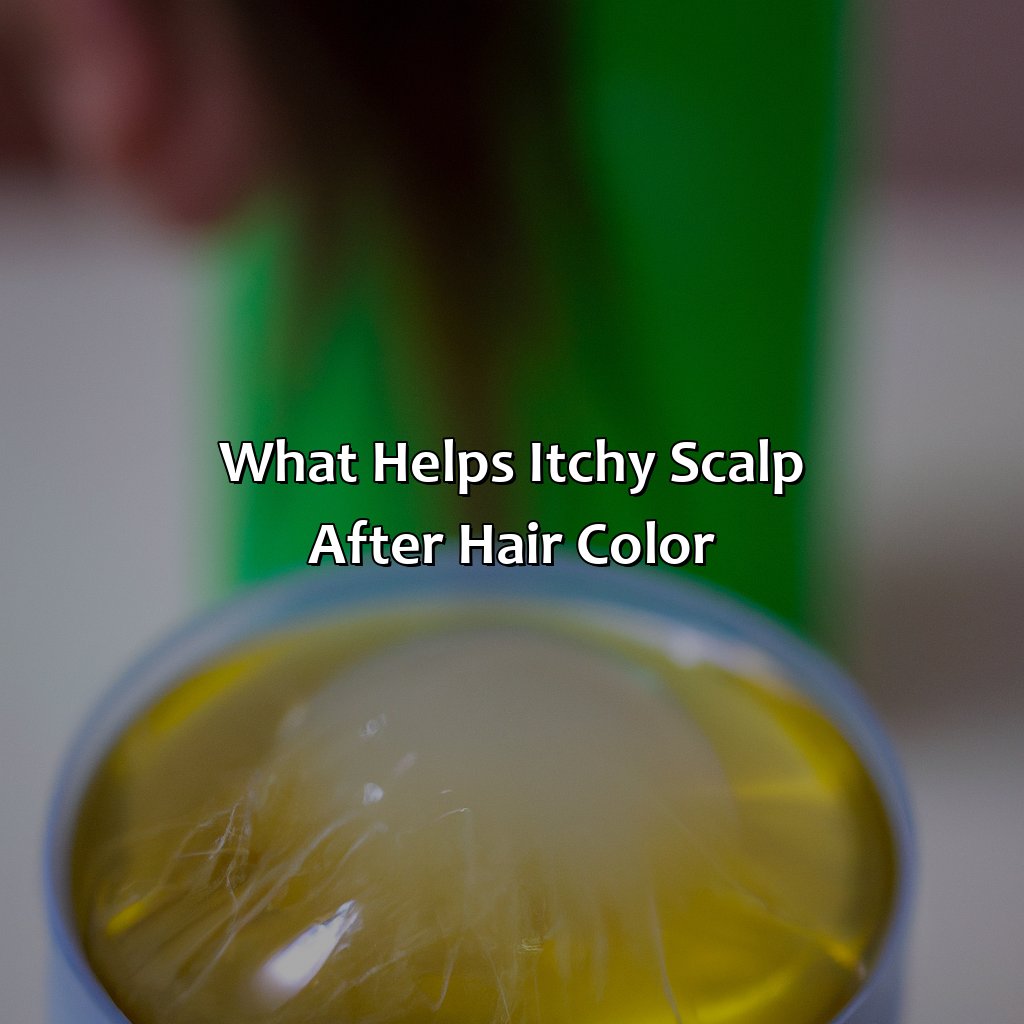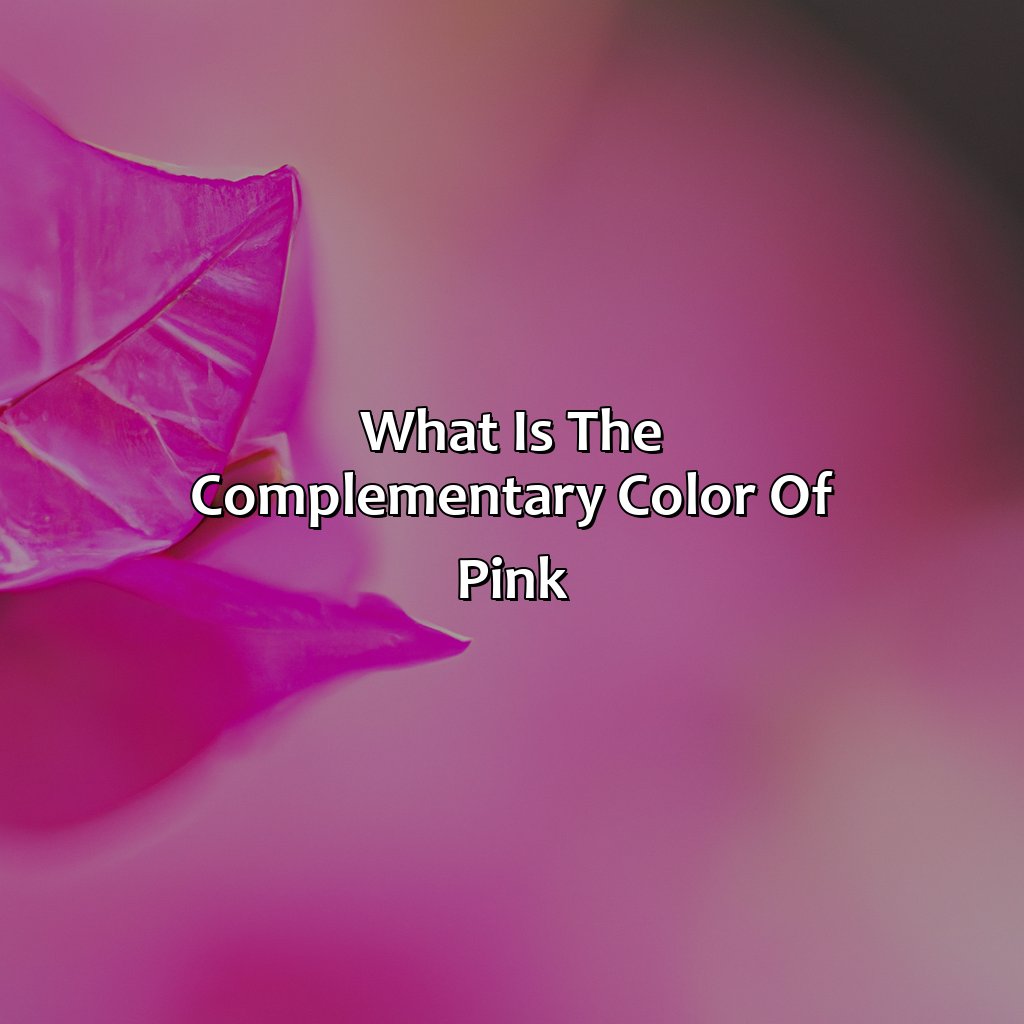Key Takeaways:
- Choose hair color products carefully and avoid harsh chemicals to prevent scalp irritation and itchiness. Look for natural hair color alternatives to minimize the risk of reaction.
- Provide proper after-coloring scalp care to soothe and nourish the scalp, such as using organic remedies like tea tree oil, aloe vera, and chamomile. Scalp massage and hydration are also important for maintaining a healthy scalp.
- Consult a professional for severe cases of itchy scalp or allergic reactions, and consider alternative hair dye options like henna. Practicing safe hair coloring practices, such as conducting patch tests and following directions carefully, can also help prevent itchy scalp.
Overview of Itchy Scalp after Hair Color
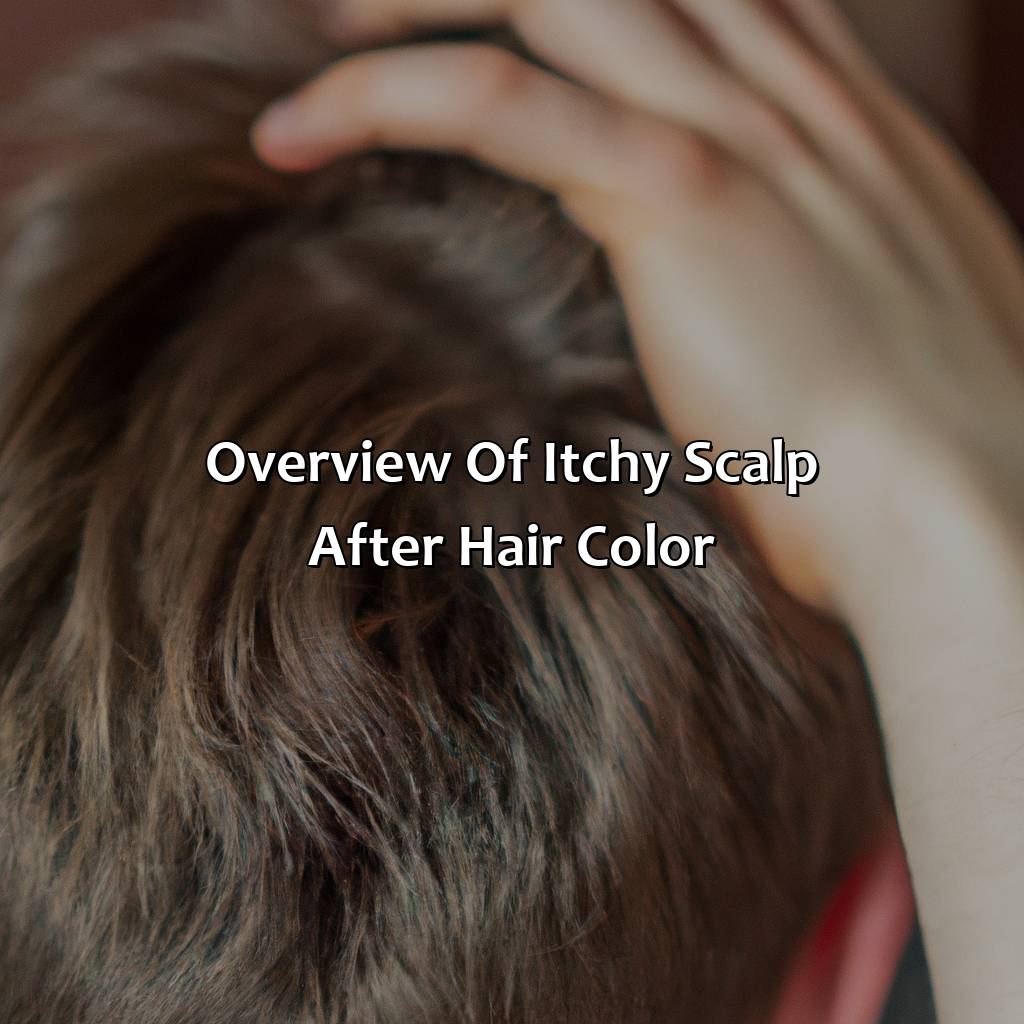
Photo Credits: colorscombo.com by Larry Taylor
When you experience an itchy scalp after hair color, it can be caused by a reaction to the hair dye or an irritation due to the chemicals. It is important to take post-coloring care of the scalp to avoid further damage or discomfort. Healing and preventing the hair problem can be achieved by following hair color maintenance tips, which involve after-coloring scalp care and natural hair dye alternatives. Colored hair care is essential to prevent scalp problems, hair dye allergy, and hair dye rash. Hair color safety and damage prevention should always be prioritized.
It is also important to note that using hair products like shampoos and conditioners with harsh chemicals can irritate the scalp further. Using natural hair care products can help alleviate the problem by providing a gentle approach to hair color upkeep and colored hair maintenance.
There is a true fact that many people have a sensitivity or allergy to hair dye, which can result in an itchy scalp. According to Dermatology Times, hair dye allergy affects about 5% of people who use hair dye. Therefore, it is important to be cautious when using hair color and seek medical help if the scalp problem persists.
Causes of Itchy Scalp after Hair Color
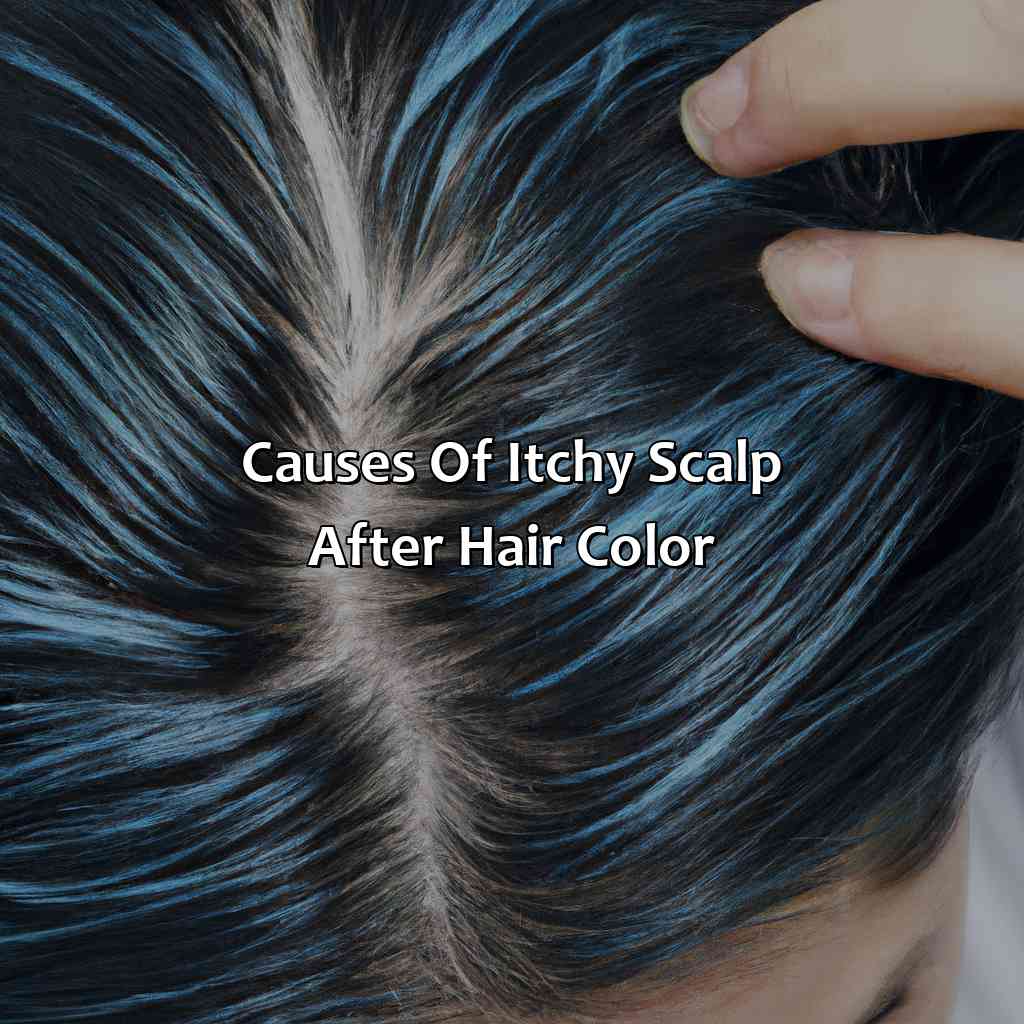
Photo Credits: colorscombo.com by Mason Wright
The itching of the scalp after hair color can be caused by hair dye allergy, hair dye reaction, or scalp irritation. A hair dye allergy is an allergic reaction to a chemical in the hair dye. A hair dye reaction is a chemical reaction of the hair dye and the scalp. Scalp irritation can be caused by the chemicals used in hair color products. Itchy scalp causes should be identified to promote hair and scalp health.
Hair dye and scalp irritation can cause itchy scalp after hair color. Identifying the cause of the itching can prevent the recurrence of the problem. If scalp irritation is the cause, then it is best to stop using the hair color product. Hair dye allergy and hair dye reaction can be managed using antihistamines, topical steroids, and other medications.
There are various factors that contribute to hair and scalp health such as proper diet, hydration, and scalp hygiene. Maintaining a good hair and scalp care regimen can prevent itchy scalp and promote overall hair health. Avoid using harsh chemicals and heat styling tools that can damage the hair and scalp.
A friend of mine recently experienced itchy scalp after hair coloring. She suffered from hair dye rash, and it made her scalp itchy and painful. She had to see a dermatologist to manage the condition. The dermatologist prescribed some medication which helped relieve the itching and promote healing. She now uses natural hair color products that do not cause irritation.
Treatment Options for Itchy Scalp after Hair Color
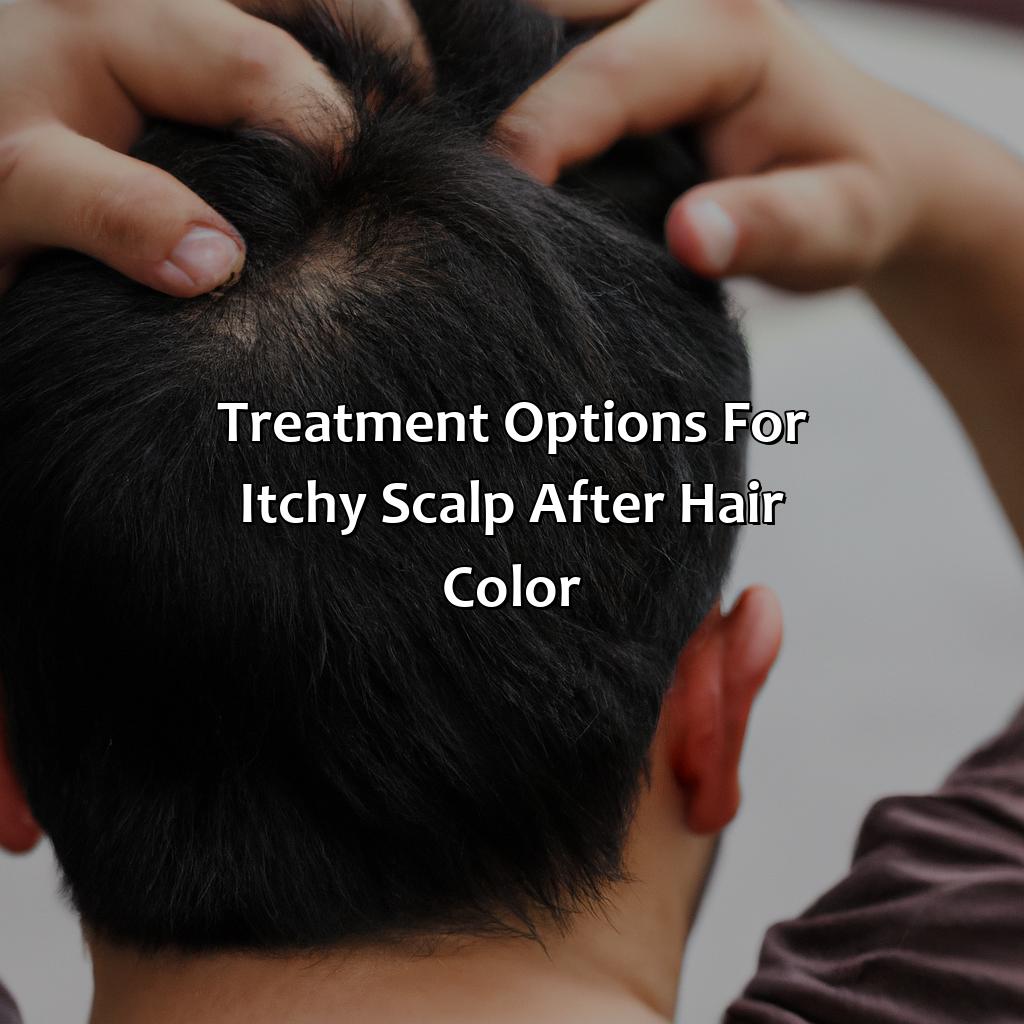
Photo Credits: colorscombo.com by Jeremy Hall
Say goodbye to an itchy scalp! Let’s explore some treatment options to soothe it. Over-the-counter remedies, home remedies, and professional treatments are available.
For instance, natural remedies include tea tree oil, coconut oil, and apple cider vinegar. Professional treatments are great for more severe cases. Get ready to find the right treatment method for you!
Over-the-Counter Remedies for Itchy Scalp after Hair Color
When experiencing scalp irritation after hair color, individuals can turn to over-the-counter remedies for relief. These products are readily available in drugstores and supermarkets, offering a convenient and practical solution to alleviate discomfort.
- One possible remedy is the use of medicated shampoos, which contain topical corticosteroids, coal tar extracts or salicylic acid that can soothe irritated skin.
- Another option is the application of a topical anti-itch cream or ointment containing hydrocortisone or pramoxine to provide temporary relief.
- Oral antihistamines such as Benadryl or Claritin can also be taken to reduce inflammation and alleviate itchiness.
- Zinc pyrithione-based products, such as dandruff shampoos, may also help reduce scalp irritation by regulating sebum production.
It’s important to note that not all remedies work for everyone, and some may even exacerbate symptoms. Consulting with a healthcare provider is recommended when trying new treatments to ensure safety and efficacy.
A client once sought my advice on how to ease her itchy scalp after coloring her hair at home. She had tried several over-the-counter remedies but found little relief. Upon closer inspection of her hair and scalp health, I noticed significant dryness and recommended using a moisturizing shampoo along with an argan oil treatment before washing. Within a few days of making these changes, she reported significant improvement in her symptoms which allowed her to continue coloring without discomfort.
Skip the chemical-laden products and opt for a little TLC with these natural remedies for itchy scalp after hair color.
Home Remedies for Itchy Scalp after Hair Color
Relieve Itchy Scalp after Coloring Hair with Natural Remedies-
To find relief from itchy scalp after coloring hair, one can try using natural remedies. These remedies are chemical-free and can provide the scalp with nourishment, hydration, and soothing effects.
Home remedies for itchy scalp after hair color that can provide relief include the following:
- Tea tree oil
- Coconut oil
- Apple cider vinegar
- Aloe vera
- Chamomile
- Lavender
- Peppermint
- Rosemary
- Witch hazel
- Oatmeal
- Baking soda
- Avocado
- Argan oil
- Jojoba oil
- Shea butter
- Vitamin E
One unique aspect of these remedies is that they focus on pH balancing and essential oils to restore and heal the scalp without harsh chemicals.
History has shown that natural remedies have been used for centuries to treat various skin and health conditions, including itchy scalp after hair color. These remedies offer safe and holistic options for those looking to avoid harsh chemicals in their hair care routine.
Get your scalp in the hands of a professional and say goodbye to the itchiness after hair coloring!
Professional Treatments for Itchy Scalp after Hair Color
Irritation and itchiness in the scalp is a common problem that many people experience after coloring their hair. Seeking professional treatments can be an effective way to relieve the discomfort caused by this condition. Dermatologists recommend several techniques to treat scalp irritation and improve hair and scalp health.
Some of the most popular professional treatments include corticosteroid injections, topical medications, and prescription-strength shampoos containing salicylic acid or coal tar. Other options may involve high-frequency therapy, laser treatments, or scalp exfoliation with microneedling. You should consult with a dermatologist or trichologist to determine which treatment option is right for your specific case.
To avoid exacerbating the condition of itchy scalp after hair color, you should also practice good hair care habits. These include using gentle shampoo formulated for sensitive scalps and avoiding excessive use of heat styling tools such as flat irons or curling wands.
One true case involves a woman who experienced severe itching and redness after having her hair dyed blonde. Despite using over-the-counter remedies, she continued to suffer from discomfort until she sought professional treatment from a dermatologist who prescribed a medicated shampoo combined with gentle exfoliation techniques. This approach resulted in significant improvement in her symptoms and overall hair and scalp health.
Prevent itchy scalp after hair color with proper hair and scalp care, because nobody wants to scratch their head like a flea-ridden dog.
Prevention Tips for Itchy Scalp after Hair Color
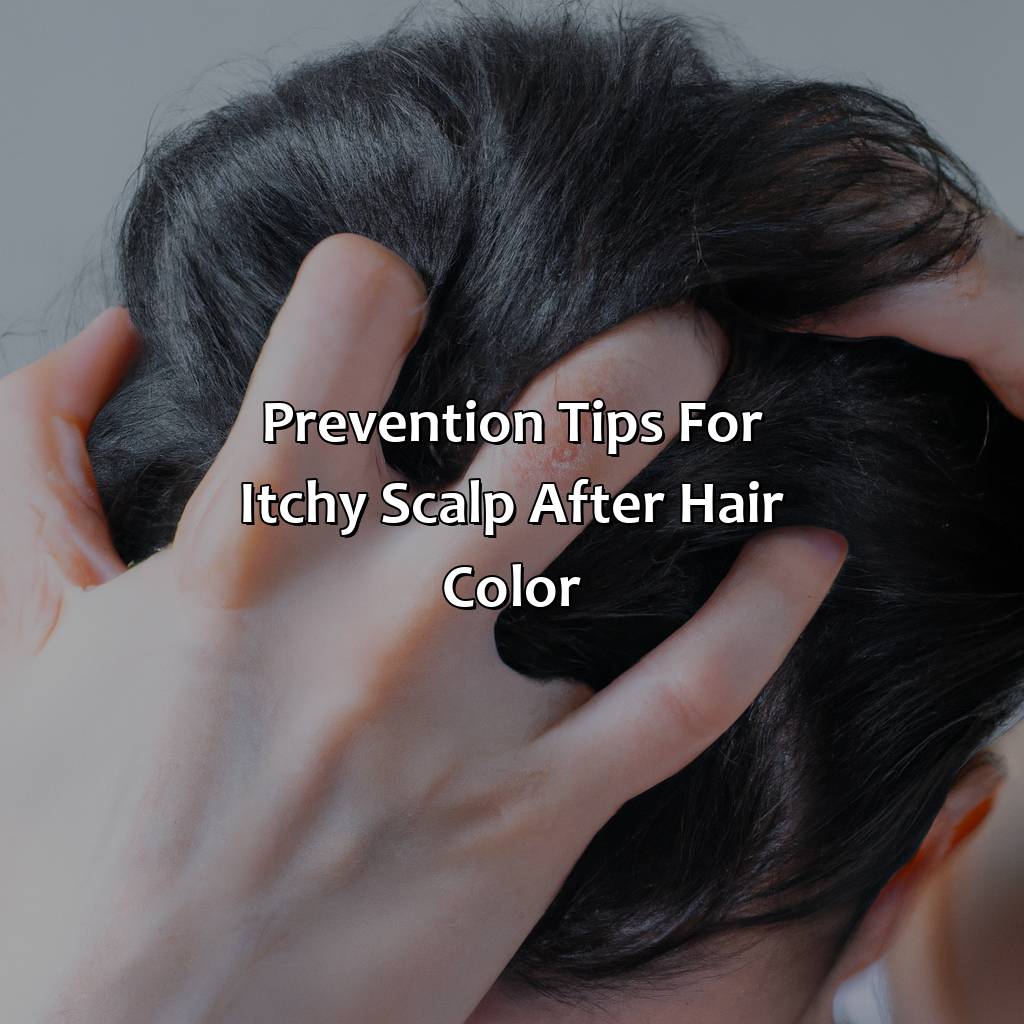
Photo Credits: colorscombo.com by Larry Martin
Itching on your scalp after coloring your hair can be uncomfortable. However, some measures can be taken to prevent scalp irritation after hair color.
- Ensure a patch test before application to avoid allergic reactions.
- Use products specifically designed for colored hair care and avoid overuse of hair dye.
- Cleanse and condition your hair regularly using mild, sulfate-free products.
- Avoid heat styling tools and opt for protective hairstyles that do not tug or pull on your scalp.
To maintain hair and scalp health, it is essential to avoid chemical treatments as much as possible. Consider alternating with natural or henna-based hair dyes to minimize the exposure to chemicals.
It is crucial to prioritize hair color safety and seek the help of a professional colorist if you have any doubts.
Safe Hair Coloring Practices to Avoid Itchy Scalp

Photo Credits: colorscombo.com by Stephen Taylor
Safe Hair Coloring Practices to Relieve Itchy Scalp
Hair color can cause scalp irritation and itchy scalp due to harsh chemicals. Follow the proper hair color safety measures to avoid hair color damage and prevent itchy scalp. It is crucial to use the right hair dye and follow the instructions to minimize scalp irritation.
To avoid scalp irritation and itchy scalp, you should opt for ammonia-free hair color and avoid heavy bleaching chemicals. Choose a hair color with natural ingredients to protect your hair and scalp. It is advisable to use hair masks and conditioners to maintain hair and scalp health.
In addition to using the right hair color, it is essential to stay hydrated and avoid prolonged exposure to direct sunlight. To relieve itchy scalp, use a mild scalp moisturizer or oil before hair coloring.
Pro Tip: Consider getting a professional hair color treatment as they use high-quality products and have expertise in hair color avoidance and damage prevention. Always do a patch test before hair coloring to avoid any adverse reactions.
Five Facts About What Helps Itchy Scalp After Hair Color:
- ✅ Rinse your hair with cold water to help soothe an itchy scalp after coloring. (Source: Healthline)
- ✅ Using a hair mask made from natural ingredients like avocado, honey, or aloe vera can help calm an itchy scalp. (Source: Byrdie)
- ✅ Avoiding heat styling tools like blow dryers and flat irons can help minimize scalp irritation after coloring. (Source: StyleCraze)
- ✅ Applying aloe vera gel directly to a itchy scalp can help reduce inflammation and discomfort. (Source: Medical News Today)
- ✅ Opting for hair color that is free of ammonia and other harsh chemicals can help prevent itchy scalp and irritation. (Source: Cosmopolitan)
FAQs about What Helps Itchy Scalp After Hair Color
What are some remedies that can help with an itchy scalp after hair color?
Some remedies that may help relieve an itchy scalp after hair color include using a gentle, sulfate-free shampoo, applying a cold compress, using aloe vera gel or tea tree oil, avoiding heat styling, and keeping the scalp moisturized.
Can I apply hair color to an itchy scalp?
No, it is not recommended to apply hair color to an itchy scalp. This can further irritate the scalp and cause discomfort. Wait until the itching has subsided before applying hair color.
What causes an itchy scalp after hair color?
An itchy scalp after hair color can be caused by an allergic reaction to the chemicals in the hair dye, a sensitivity to the hair dye, or a dry scalp due to harsh chemicals in the hair dye.
How can I prevent an itchy scalp after hair color?
You can prevent an itchy scalp after hair color by doing a patch test before applying hair color, using a gentle, sulfate-free shampoo, avoiding heat styling tools, and keeping the scalp moisturized with a nourishing oil or scalp treatment.
When should I seek medical attention for an itchy scalp after hair color?
If the itching persists for more than a few days or is accompanied by other symptoms such as redness, swelling, or bumps, it is important to seek medical attention as this may be a sign of an allergic reaction or other skin condition that needs to be treated.
Is it normal to have some itching after hair color?
Some mild itching after hair color is normal, as the scalp may be sensitive to the chemicals in the hair dye. However, if the itching is severe or persists for more than a few days, it is important to seek medical attention to determine the cause and proper treatment.
